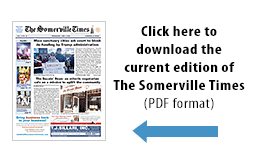 By William C. Shelton
By William C. Shelton
(The opinions and views expressed in the commentaries of The Somerville News belong solely to the authors of those commentaries and do not reflect the views or opinions of The Somerville News, its staff or publishers.)
It’s now one week before a national election. Attack ads are saturating the electronic media, uglier than ever and playing fast and loose with the truth.
A statement may be factually accurate, but not true. I may say that you have a hysterical fear of water, but I don’t mention that you’re on top of your house, praying for rescue from a rising flood and impending hurricane. The first fact accurately conveys one meaning. Adding the second fact radically changes the meaning. Using only the first fact is what most attack ads do.
Millions of voters lack the time or will to do the full examination of issues that citizenship requires. They latch on to whatever isolated facts suit their bias. Driven by anger, they repeat those facts. The tea party movement is only the most extreme example of this pervasive phenomenon that has come to pass for political discourse.
Going back to the flood example, imagine that I’m unaware of its existence, and your hysterical fear is all that I know about you. Imagine that all you know about me is that I keep repeating the first fact. This will outrage your sense of justice and infuriate you. When you fire back, I will be angered by your “unprovoked” attack, and respond in kind. Whatever one of us says, the other will interpret in the light of his or her beginning assumption and view it as confirmation. So it goes.
In an odd but real way, the media promote this by pretending to “objectivity.” They offer what they call a “balanced” presentation of competing claims, fully knowing that one side broadcasts isolated facts, while the other is closer to the truth. They do so in service to their pretense of objectivity and to reporting formats that are too short to examine substance.
No one can be objective.
It’s not that people don’t want to be objective. But human beings don’t have the capacity to directly know the TRUTH.
Even when we see things “with our own eyes,” they remain our eyes. The human brain can’t take in information without simultaneously giving it meaning. And the only basis that we from which to give meaning is every other experience that we previously had, and the meaning that we gave to those experiences.
In the 19th Century, Americans read newspapers more than any other people in the world. Those papers were fiercely partisan, but they were often filled with extensive substance. The idea that journalists should or even could be “objective” is historically recent. A handful of intellectuals in the 1930s, most notably Walter Lippmann, argued that journalism could not become a “profession,” until its practitioners were fully “objective.”
In pursuit of broader circulation and more ad revenue, news publishers realized that the blander that they were, the fewer people they would offend. With the proliferation of cable television news and internet blogs, the trend has gone in the other direction—market segmentation. Cable networks’ quest for market share still dominate considerations of completeness and accuracy. Each network has decided that anger boosts ratings. Fox sells Bill O’Reilly’s right-wing anger, and MSNBC sells Keith Oberman’s left-wing anger.
Younger and more educated readers are increasingly turned off by bland sources that pretend objectivity, as well as partisan sources that focus on a highly selective set of “facts.” The reliably nonpartisan Pew Research Center for the People and the Press tells us that, “as many as 38 percent, who rely mostly on the Internet for news, say that they have an unfavorable opinion of cable news networks.” What they want is reporting that gives context and, yes, opinion, while being true to all the available facts.
The Guardian, Times of London, and the Independent, three English newspapers, now have more American than British online readers. Their reporting is more in depth, while placing a higher premium on analysis and opinion than does any serious American paper.
When I hear a person or a news source insist that they are “objective,” I become skeptical. I wonder how different their experiences and circumstances are from mine. I wonder whether what appears to be “objective” to most isn’t just the status quo, and that the status quo seems objective because it is what is most familiar rather than what is most accurate.
So if we are going to do our best to get at the truth without pretending that we are objective, I believe that we have two obligations. The first is to seek out all of the relevant evidence that we can find, and not exclude any because it contradicts our position. As Daniel Patrick Moynihan used to say, “Everyone is entitled to their own opinion, but not to their own facts.”
The second is to describe our underlying assumptions as honestly as possible, and let others evaluate what we say, based on their understanding of those assumptions. Acknowledging my many failings, that is what I attempt to do in this space.















Reader Comments